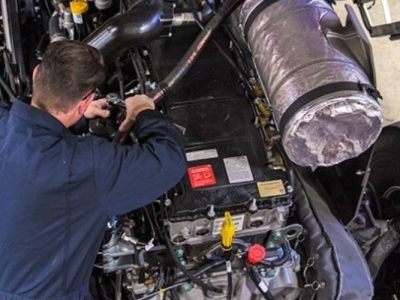Diesel Car longevity and performance depend on regular engine tune-ups. Regular tune-ups improve fuel economy and ease of driving. Your car must be prepared for an engine tune-up in several steps to ensure proper operation. This information will help you prepare your car for a good and affordable engine tune-up.
Gather Necessary Information
Before getting a tune-up, gather all your diesel car’s maintenance records. This includes current mileage, dashboard warning lights, and engine issues or repairs. A thorough knowledge of your car’s history helps the mechanic spot potential concerns faster and more accurately. Check your owner’s manual for recommended service intervals. This helps the mechanic customize your car care.
Conduct Basic Visual Checks
Before the engine is tuned up, you should perform a visual inspection of your vehicle. It is important to inspect the engine compartment for rusty battery terminals, fluids that are leaking, and hoses that are damaged. When using the dipstick, check the amount of the oil. Is the oil stale or dirty? You should get a new outfit before the appointment. A clean air filter improves the performance of the engine; thus, if it is too dusty or obstructed, you should replace it.
Assess Fluid Levels
Checking all fluids is part of your preparation because car performance depends on them. It includes engine oil, coolant, braking fluid, gearbox fluid, and windshield washer fluid. Check fluid levels and condition. Replace dirty fluids or top off low ones. Keeping a fluid level log might help you diagnose engine issues and detect leaks.
Check the Battery
A healthy battery is essential for engine tuning. The battery should be fully charged and the connectors clean before your visit. Check the terminal area for corrosion and clean it if needed. If your battery is older than three to five years or showing signs of weakness, such as fading headlights or trouble starting, get it checked or replaced before the tune-up. A working battery allows all tune-up diagnostic tests to run smoothly.
Communicate with Your Mechanic
When you get to the mechanic for Diesel Repair in Jonesboro, AR, mention any driving symptoms or concerns. Inform the technician of any unusual vibrations, sounds, or odors to help diagnose issues. Giving explicit explanations may result in a more complete evaluation, ensuring that your car’s entire tune-up is handled. Make sure you understand the services and costs before continuing.
Conclusion
Following an engine tune-up, it is important to plan routine maintenance in order to keep your vehicle in good condition. The performance of the engine and its overall health are both improved by performing routine maintenance, inspections, and fluid changes. You should think about adapting a maintenance schedule to your driving style as well as the recommendations of the manufacturer. You may be able to improve your driving experience, extend the life of your vehicle, and keep yourself safe if you take preventative measures.








Comments